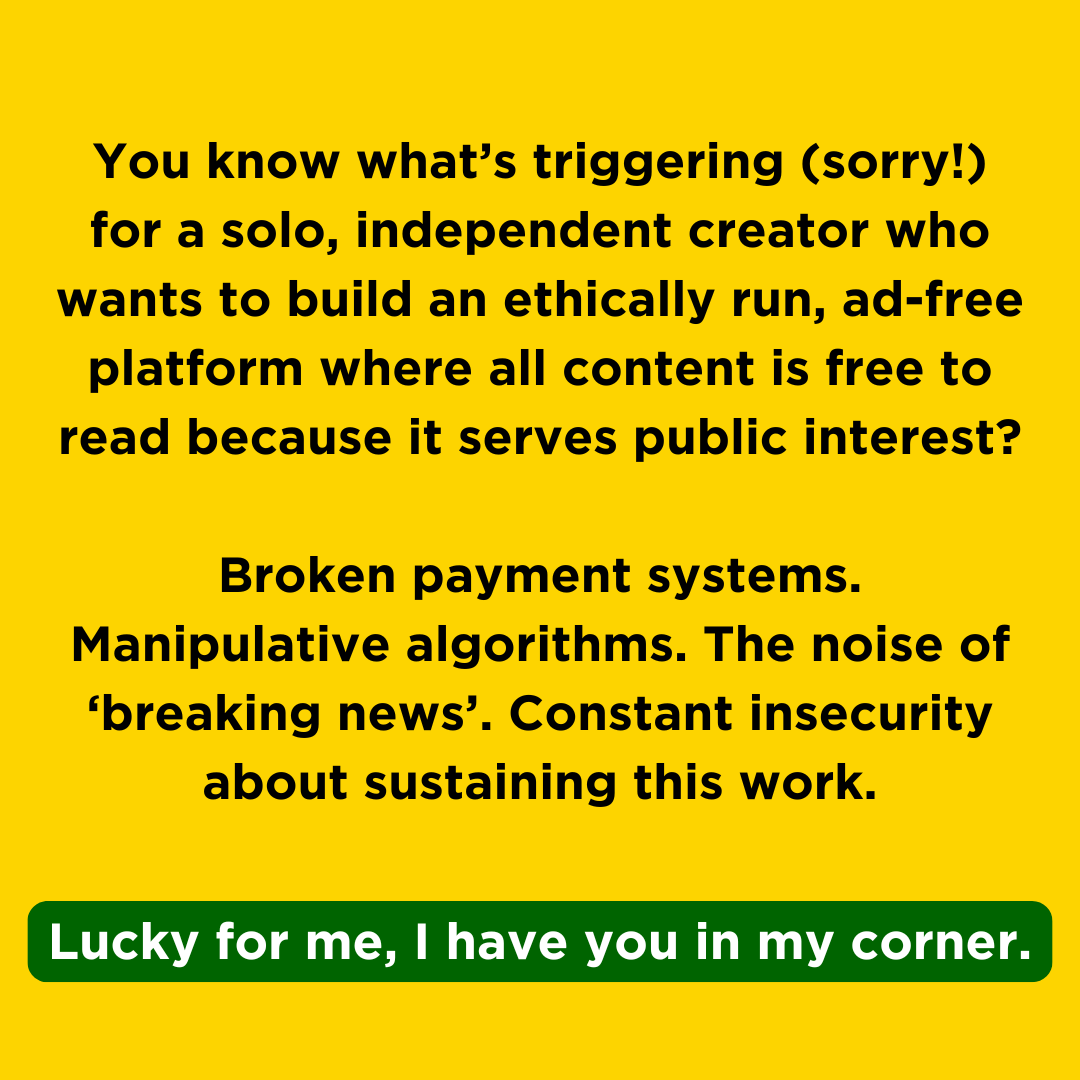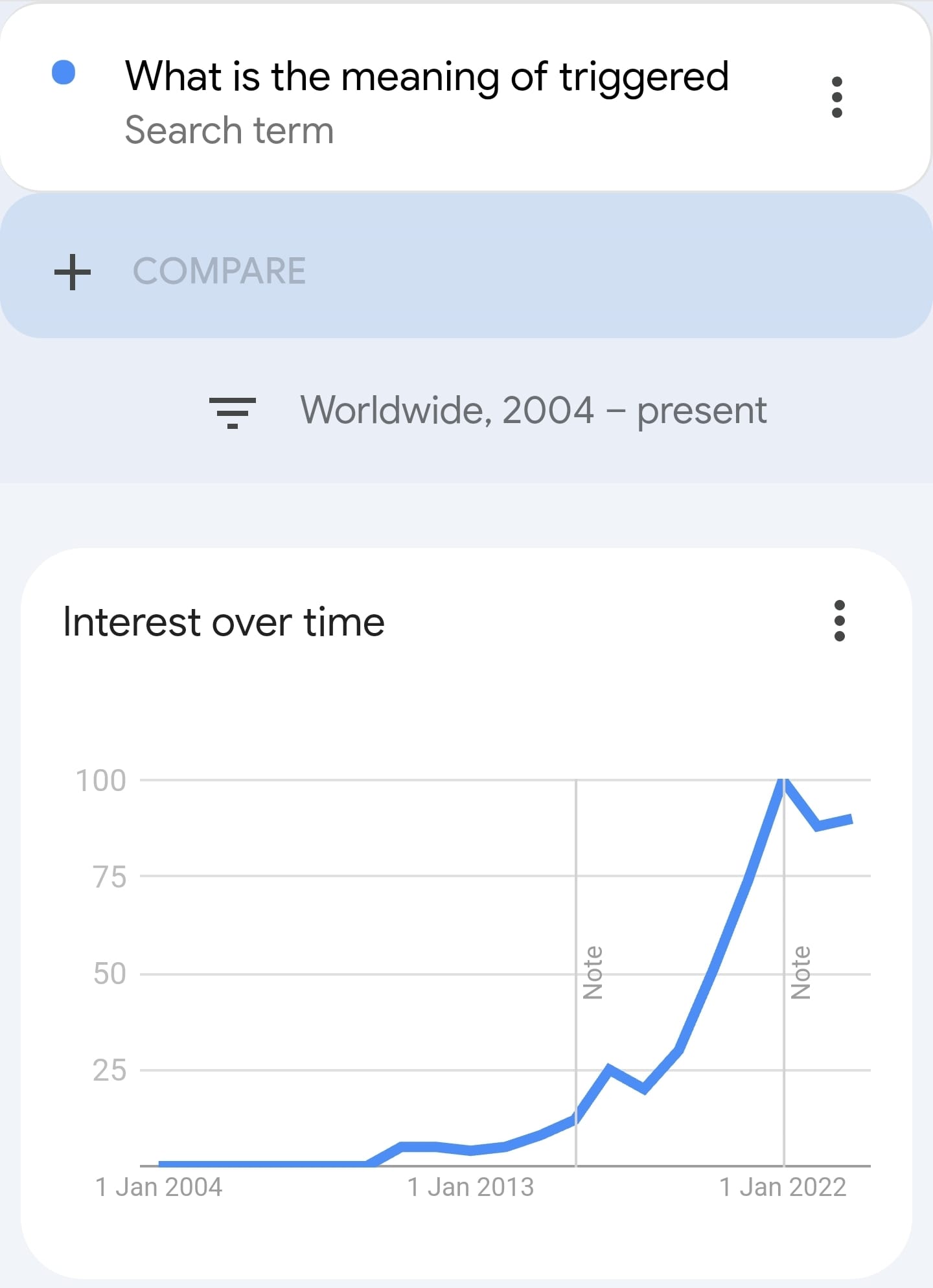
Research shows trigger warnings can do more harm than good. But it's more complicated than that.
Time to say goodbye to a staple of the (liberal, progressive) internet? Not so fast.

Support the petition here
In 2022, Merriam Webster declared 'gaslighting' the word of the year. A close rival would've been another word that describes how you feel when someone gaslights you. The word is 'triggered'.
Seemingly out of nowhere, triggered (eg, "I was so triggered" or "that was so triggering") has become our go-to word to capture the impact of the constant horror and anger that the world, well, triggers in us. From the killing of children in a genocide to hate speeches by politicians to stand-up comics who mock your soulless corporate career – to be alive today is to be permanently triggered.
Just when did the word became such a catch-all? I looked at 20-year Google search data and discovered that searches with the question 'what is the meaning of triggered' started spiking around 2019-20, before soaring to an unprecedented high in 2022 (graph below). Perhaps this was the effect of the pandemic, when we were prone to being triggered like never before. But the word has continued to amass pop-culture heft – at the inevitable cost of becoming a parody of itself.
Triggered, when used in a mental health context, was meant to refer to the activation of trauma among people with PTSD when they relive painful episodes of their lives, not merely feeling miffed at or offended by a movie or your annoying uncle. An Indian YouTuber who goes by 'Triggered Insaan' (insaan = human) has nearly 23 million subscribers; his specialty is laughing at funny memes.

Now look, I am the last person to get triggered by 'wrong' use of language. I'd like to believe that our growing penchant for the word is, at least partly, a welcome sign that we are becoming increasingly assertive about our boundaries, our right not to be triggered as it were. Nonetheless, its chaotic spraying, much like what has happened with 'trauma' itself, merits a reckoning, like I attempted here.
The question I want to ask you today is what the ubiquity of triggered means for another prominent fixture of the internet's lexicon, including this very platform: 'trigger warning', or TW. This small block of real estate on your screen has long stood for emotional safety and protection from potentially harmful content. But when everything triggers us all the time, what's even the point of trigger warnings?
There's more. Research shows that trigger warnings are, in fact, rather ineffective as a deterrent. What's worse? Instead of shielding you from harm, trigger warnings could end up causing distress.
Where does that leave you and me?




